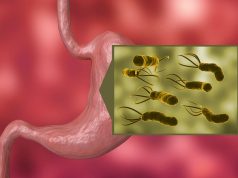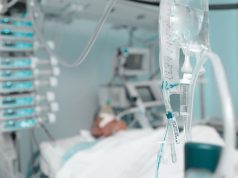Risk increased across all age groups with highest risk for infants and toddlers; risk seen across individual PPIs
MONDAY, Feb. 8, 2021 (HealthDay News) — Initiation of proton pump inhibitor (PPI) use is associated with an increased risk for asthma among children compared with nonuse, according to a study published online Feb. 8 in JAMA Pediatrics.
Yun-Han Wang, from the Karolinska Institutet in Stockholm, and colleagues examined the association between PPI use and risk for asthma in children in a nationwide cohort study. Data were included for 80,870 pairs of children and adolescents aged 17 years or younger matched by age and propensity scores.
The researchers found that the incidence rate of asthma was higher for those who initiated PPI use versus noninitiators (21.8 versus 14.0 events per 1,000 person-years), with a hazard ratio of 1.57. Across all age groups, there was a significantly increased risk for asthma, with the highest risk observed for infants and toddlers (hazard ratios, 1.83 for those aged <6 months; 1.91 for those aged 6 months to <2 years). For individual PPIs, the hazard ratios were 1.64, 1.49, 1.43, and 2.33 for esomeprazole, lansoprazole, omeprazole, and pantoprazole, respectively. In analyses of the timing of asthma onset after PPI initiation, the hazard ratios were 1.62, 1.73, and 1.53 for 0 to 90 days, 91 to 180 days, and 181 days to end of follow-up, respectively. The association was consistent through sensitivity analyses.
“These findings suggest that asthma is one of several potential adverse events that should be considered when prescribing PPIs to children,” the authors write.
Two authors disclosed financial ties to the pharmaceutical industry.
Copyright © 2020 HealthDay. All rights reserved.








